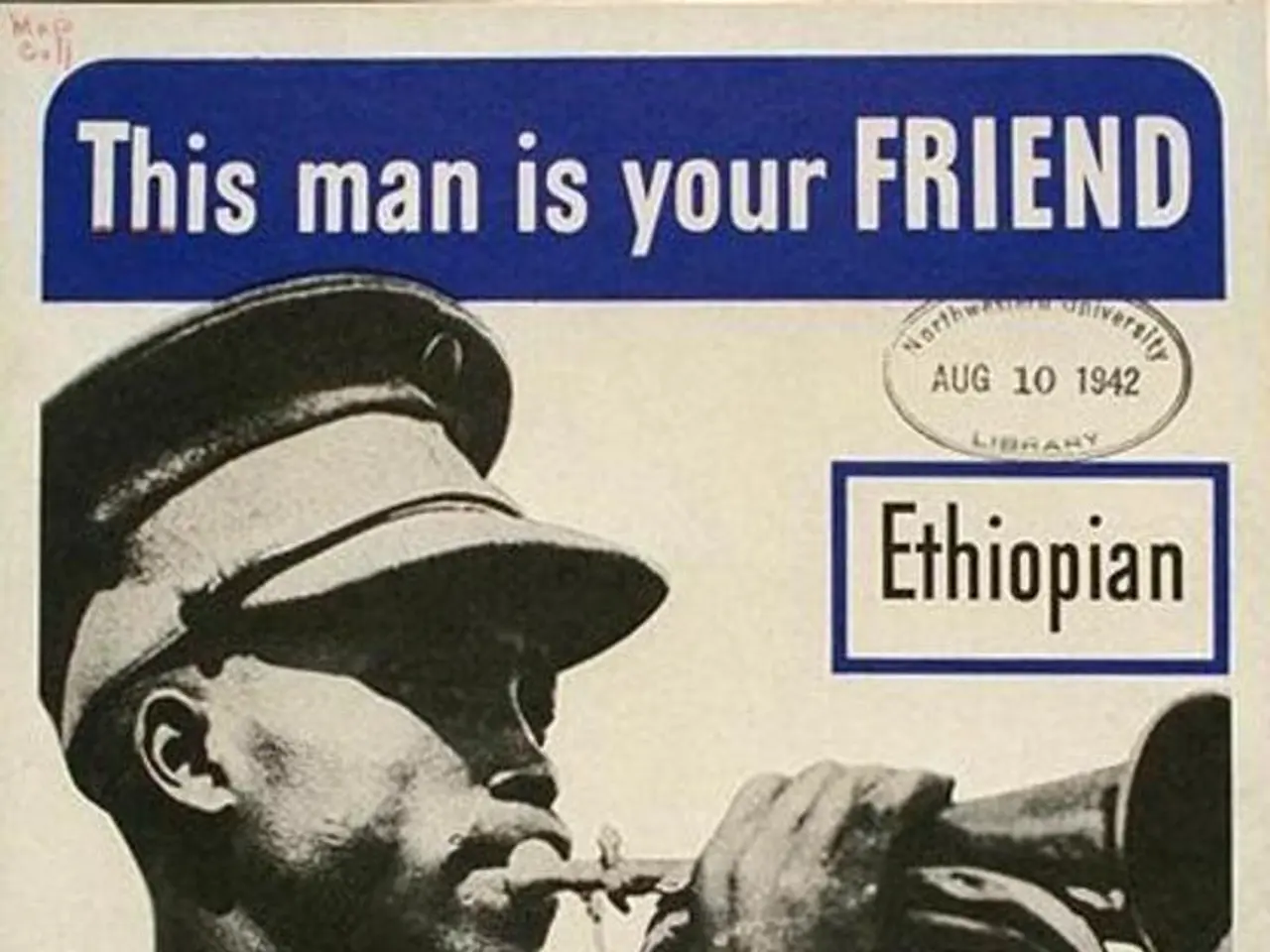Conflict Pursued by Lenin
In the realm of political discourse, the concept of war and politics being interconnected has been a topic of debate for centuries. While often attributed to Prussian military theorist Carl von Clausewitz, it was Lenin, the leader of the Bolsheviks during the Russian Revolution of 1917, who embodied this understanding in his political and military strategies.
Amid World War I and deep social upheaval in Russia, Lenin seized power from the provisional government after decades of autocracy, war fatigue, and economic crisis. His leadership reflected a belief that political power struggles were fundamentally about control and could involve violent conflict. This perspective is exemplified in his implementation of War Communism during the Russian Civil War, which showed how political objectives required strict military-like control and suppression of dissent to maintain power.
The idea that politics is "war by other means" justifies the use of revolutionary violence as a necessary continuation of conflict over power. It frames politics not as peaceful negotiation but as a struggle where ends often justify harsh means. This perspective influenced Leninist and Marxist-Leninist doctrines, emphasizing the need for a vanguard party to maintain and protect the revolution through disciplined control and suppression of opposition.
Lenin's approach has had a lasting influence on revolutionary movements, authoritarian regimes, and political theory worldwide. It validated the use of force in revolutionary and post-revolutionary politics, inspired the development of totalitarian states that prioritized control and repression for political ends, and led to debates in international relations and political science about the blurred lines between war, politics, and diplomacy.
Today, the concept informs discussions about hybrid warfare, state repression, and political violence, reminding that political competition can often escalate into covert or overt conflict resembling war. However, it is crucial to note that Lenin's political praxis is not without criticism. Critics argue that his strategies led to the rise of totalitarian regimes that suppressed individual freedoms and caused immense suffering.
In contemporary politics, the intertwining of war and politics continues to be a contentious issue. Many leading politicians are accused of selling out to foreign powers and repeating their talking points, while the possibility of communist infiltration is not considered. The infiltrators are said to be enabling criminals, weaponizing the justice system, flooding cities with illegal aliens, debasing the currency, and making everything worse and worse.
Peter Mcilvenna, in a recent statement, warned that unless America comes back to truth, it will lose its right to exist. The ongoing debate underscores the enduring impact of Lenin's political praxis and the importance of understanding the role of conflict and force in political life.
References: [1] McAdams, D. (2006). Political regimes: An introduction. W. W. Norton & Company. [2] Mearsheimer, J. J. (2001). The tragedy of great power politics. W. W. Norton & Company. [3] Tucker, R. (1990). The Marx-Engels reader. W. W. Norton & Company. [4] Service, R. (2000). A history of modern Russia: From Nicholas II to Stalin. Penguin Books.
- China and Russia, both with Leninist roots, have been criticized for their suppression of individual freedoms and autocratic governance, raising concerns about totalitarianism in modern politics.
- The education-and-self-development sector must address the impact of politics and war-and-conflicts on society, particularly in light of Lenin's legacy that emphasizes the use of force in political life.
- Two leading news topics in general-news today involve crime-and-justice issues related to politicians who are accused of selling out to foreign powers and repeating their talking points, as well as the rise of criminal activities concealed under communist ideologies.
- As the debate over the role of foreign influence in domestic politics continues, it is essential to question the role of political leaders who may be enabling criminals and weaponizing the justice system to maintain power, a practice reminiscent of Lenin's strategies.
- Amid growing concerns about political leaders who prioritize control and repression for political ends, as seen in Russia, China, and other countries, calls for truth and accountability are gaining momentum to protect freedom and prevent the rise of totalitarianism in contemporary politics.




